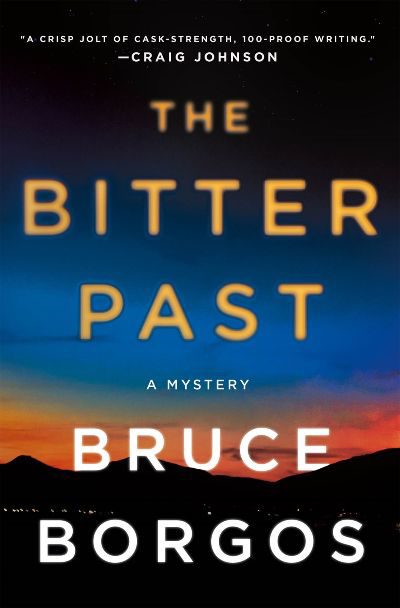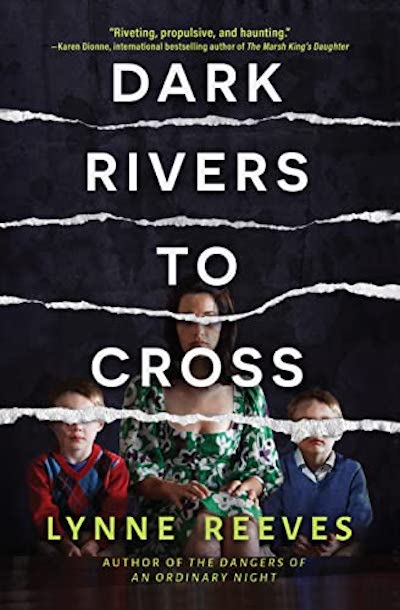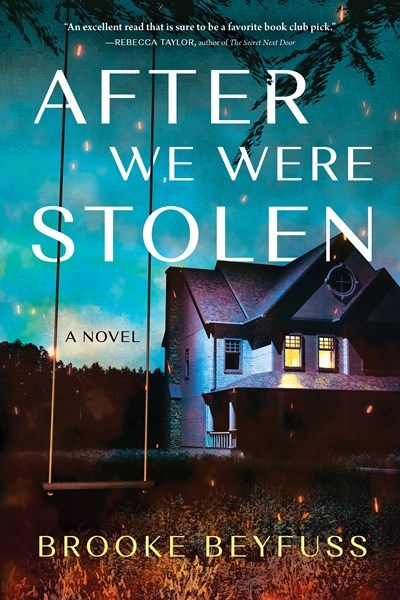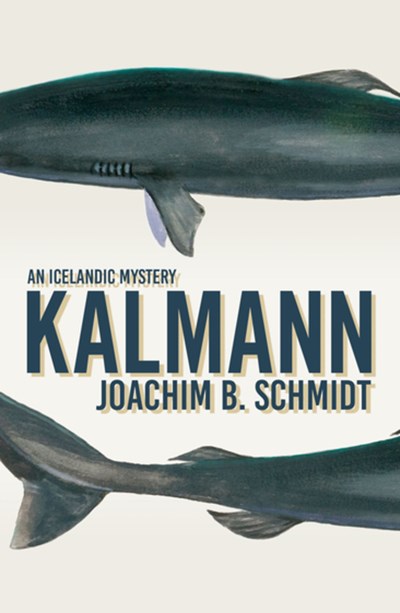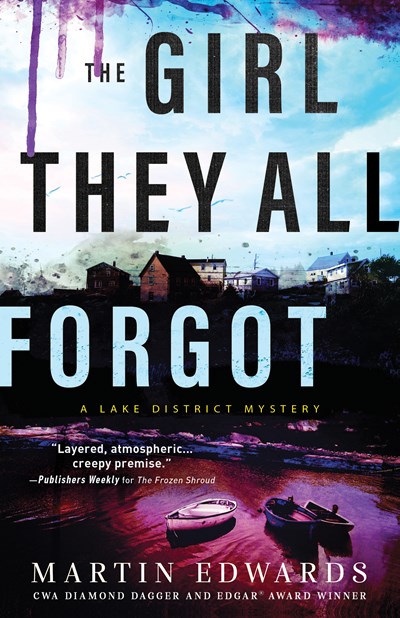The high desert of eastern Nevada is Borgos’s setting for this series debut, and it opens with the most violent death Sheriff Porter Beck has seen. A retired FBI agent, Ralph Atterbury, looks to have been tortured for hours, his skin removed in strips and his nipples blowtorched. It can’t be a routine break-in, but what could the man have done that would inspire such rage? Flashing back to supposedly a more apple-pie time, Nevada in the Cold War, we meet Freddie Meyer, a young man who’s humble enough to go steady with Kitty Ellison, a bookish girl who “wasn’t the most striking” of her friends. In due course, Kitty’s physicist father helps Freddie get a job—he’s just so gosh-darn grateful!—at the nearby atomic testing site’s top-secret project. Readers are let in on the audacious, almost unbelievable plan that unfolds, one that Beck slowly uncovers as he seeks the identities of Atterbury’s killer and a Russian spy who he believes worked at the testing site all those years ago. Beck has the nice-guy relentlessness that readers love in an investigator. His love interest, present-day FBI agent Sana Locke, adds wiles and beauty, and the Cold War storyline is gripping. I can’t wait for the next from Borgos.
Small Town & Rural
Small towns in cozies tend to center on sumptuous bakeries, homey libraries, and kind neighbors. Walsh and his characters aren’t here for that. Instead, they kick you upright to witness the rot that can set in when greed, fear, and both too much and too little hope clash in a small community. The story here focuses on the titular character, a member of a Kinlough, Ireland posse of teens who make fast, cutting judgements—some startlingly accurate—about those around them. Those judgements and their attendant goings-on follow the group over decades. Except for Kala, that is, because she goes missing as a teen, an event that’s explored through flashbacks to that hormone-and-sunshine-filled time and in the present, when one of the gang returns to Kinlough for a wedding and Kala’s disappearance becomes a focal point once more. This is far more Stuart Neville than Maeve Binchy, and includes both graphic descriptions of animal abuse and child abuse that happen off the page, but if you can stomach those scenes, you’re in for a memorable tale with not a word wasted. Side note: until I checked, I thought this was written by an Irish woman, as my days as an all-girls’-school-schoolgirl in rural Ireland were that faithfully reproduced (hand me the smelling salts whenever you get a chance).
A school shooting in fictional Charon County, VA, reveals horror and catalyzes reckoning in S.A. Cosby’s eagerly awaited follow-up to Razorblade Tears. This is, unsurprisingly, a masterpiece of Southern noir, but that’s selling it short: it’s a fantastic novel, period. The first responders to the shooting are led by Sherriff Titus Crown, a Black man who won a contentious, racist battle for his seat and who now safeguards Klan members and kind neighbors alike. Titus is able for them all, alternating deep kindness with cutting, politically savvy one-liners that put racists in their place. (Appropriate, given his lack of fondness for “stand[ing] there like an extra in Gone with the Wind.”) But even he is thrown when the investigation into the school shooter—a Black man killed at the scene by white cops—uncovers a grisly secret. Join Titus and his meticulously drawn, flawed family, colleagues, and townsfolk for a deep introspection on how evil begets evil and good begets good. And watch for the gripping movie that’s sure to spring from Cosby’s pages.
“I can trace so much of my life back to a summer night when I was seventeen,” opens main character Nathan, and right away you’re reading through your fingers like watching a horror film. Nathan’s a good boy until that summer night, when racy LeeLee takes him to a party. One thing leads to another and next thing he gets The Phone Call: LeeLee’s pregnant and needs $1,000 to fix the problem. Nathan has $100. He has tough decisions to make and no perfect options, a problem faced by the other struggling characters in this book, all of whom are scraping by in Locksburg, PA. Years later, Nathan comes upon a chance to leave his troubles behind: when he rescues a man from a burning building, he finds a sack of money that he impulsively puts in his truck. Then we meet the other main characters, whose narratives alternate and overlap with Nathan’s: Paula, Nathan’s wife, a nurse who wants nothing to do with the money; Callie, a nurse who works with Paula and who wants to give a dying young patient one last chance at happiness, defying the girl’s fundamentalist Christian parents in the process; and Andy, a recovering heroin addict who, facing bottomless grief, puts his remaining days into punishing an evil man. New York Times editor Jaworowski’s characters are so real, their struggles so palpable, you won’t want to leave them. A must for fans of This Is Us.
Jonah and Luke Blackwell are teen brothers-by-adoption who are close in age, and close generally. But they disagree on one big thing: whether to find out their origins. Adopting from foster care, Lena Blackwell was planning to take in one child, but on the big day found him holding hands with a smaller boy, and the rest is history. But it’s history that Jonah can’t leave alone. Lena is at first mildly dissuasive, saying only that the adoption was closed for a reason. As time goes on, however, she grows increasingly frightened that Jonah will uncover why she’s a virtual recluse at the Millinocket, Maine inn that she and Luke run while Jonah attends college. Curious too is why the inn is owned by Coop, the Native Penobscot man whom the boys thought was an employee. And why, when a guest arrives at the inn who seems to know Lena from the past, is she bundled off to stay with the competition? As flashbacks that are haunted with fear take readers back to Lena’s long-ago struggles and her arrival in Millinocket, present-day determination, exasperation, and love bring us closer to an unpredictable and scary finale. This fast read is for those who enjoy strong protagonists digging their way out of tough circumstances.
Hartstone’s debut draws on the real-life town of Marshall, Texas: a quarter of all patent cases in the country are heard there. In the 1990s, Judge T. John Ward made his courtroom in the Eastern District of Texas, or EDTX, a kind of patent-trial machine, using timers when lawyers spoke and limiting the number of pages they could file. In addition, Marshall’s juries award unusually high amounts in damages, all making EDTX attractive to those suing for patent infringement. Judge Ward is called Gardner here, but the practices are the same. Appearing in his court is Amir Zawar, whose rideshare app may have stolen another product’s design. Representing Zawar is James Euchre, a lawyer who tells himself he’s quit smoking…he only has a few per day, after all…and is trying to limit himself to three drinks a day. His resolve is tested when his client is, shall we say, reluctant to go along with court decorum. It’s not a great idea to hit your lawyer and threaten the judge’s life, but it’s even worse when the judge is later found dead. Euchre has never worked on a criminal case before, let alone one that could involve the death penalty, but Zawar insists he stay in the lead counsel seat, with both characters, along with Euchre’s love-interest coworker in the trial, taking readers on a tension-filled ride to justice. Lawyers, such as one Mr. Grisham, have long written compelling legal thrillers; this book, by an experienced TV writer, stacks up favorably against the legal greats.
Avery lives outside in a tent while her family sleeps inside. Over the years, she’s learned to start her own fires; sometimes it doesn’t work and she’s freezing and hungry, but things aren’t much better for her nine siblings inside. Their parents, cult leaders preparing the family for when they’re the only ones left on Earth, emphasize toughness over all else. The children get their hopes up when the parents announce a buddy system, but it turns out that your buddy is the one who will be punished if you leave, so escape seems unthinkable. Avery finds a way out, though, accompanied by her little brother Cole, only to discover that they’re famous in the outside world as victims of years-ago child abductions. What happened the night the pair escaped and how they will navigate notoriety and society’s expectations are mysteries that will keep readers rapt. Also engrossing are the overwhelming emotions involved with both staying and going, the realization that just because the biggest problem is over doesn’t mean everything is rosy, and the ways tormented people treat one another even when survival is no longer at stake. Avery has grit and attitude to spare and will stay with readers long after the last page.
Deeply heartfelt and gently humorous, Kalmann is as unique as its eponymous hero, Kalmann Odinsson. Self-proclaimed mayor of Raufarhöfn, a small town in Iceland’s far north, early thirty-ish Kalmann is also the town’s one remaining shark catcher and producer of hákarl, a delicacy made from fermented shark. But Kalmman’s mind works differently from most people’s. You could call him neurodivergent, but he just says that “things with me have never really gone forward.” Then one day, when hunting a fox outside of town, he comes across a large pool of blood in the snow. This leaves him completely rattled, but instead of reporting it to the police, he goes home and watches Dr. Phil. Kalmann is called in for questioning the next day; it seems that a local businessman has disappeared. While Kalmann remains sort of focused on solving the murder—while putting forth the theory that a polar bear could be the culprit—Schmidt takes us deep into Kalmann’s life, from his mixed experiences growing up to all he learned about survival from his wonderful grandfather, and from his bouts of loneliness to the challenges he has communicating with others, and vice versa. Still, the criminal element remains the rope that pulls us through the book. Schmidt’s creation of the character Kalmann is no less than masterful. Can we hope that this is just our first foray with Kalmann?
Searing heat and searing pain pulse off the pages of Scrivenor’s debut novel, which brings to mind the colonially forged dysfunction described by her Australian countryman David Malouf. The sad tale, in which awful events take on an air of near-inevitability, is narrated by Ronnie, a 12-year-old girl whose best friend, Esther, vanishes one day after school. Esther wears her name “like a queen wearing her crown at a jaunty angle” and even on a normal day exudes a kind of magic, says Ronnie; it’s impossible to her that anything bad could have happened. Still, nighttime comes and Estie’s not home, and the search is on. While the girls’ movements take center stage in Ronnie’s mind, to the reader, there are three centers of gravity here. Yes, there’s Ronnie and Estie. But also starring are their mothers and other weary, disappointed women of the dilapidated town. Finally, there’s a Greek chorus of disembodied children’s voices whose chillingly detached versions of what happened alternate with the more conventionally delivered story. Brace yourself, this is something.
Life is certainly nasty, brutish, and short—at least for most of the characters in Edwards’s much-awaited new installment, set on the edge of England’s Lake District. DVI Hannah Scarlett is in charge of cold cases, and she’s actually been funded well enough to put together a small team. Here she’s investigating the disappearance of a young woman, Ramona Smith, who is presumed to have been murdered 21 years ago. The case gets noticed when a young man commits suicide by running into quicksand—at the exact location and date that his father, who was acquitted of Ramona’s murder, took his life. The search for Ramona takes Hannah and colleagues through quite a number of plot lines with quite an assortment of characters, one creepier than the last: a sexually repressed antiques dealer, an over-the-top toy boy, a sexy—but completely plastic—middle-aged woman, and so many more. What’s remarkable is how intertwined the characters are; even Hannah’s personal life comes into play. As Hannah digs deeper into the evidence of the past, and confronts the present, readers have the pleasure of seeing such a complex narrative effortlessly resolve itself. For readers of Ann Cleeves, Mark Billingham, and Clare Donoghue.

